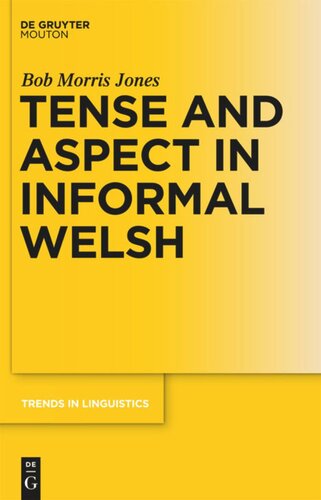

Most ebook files are in PDF format, so you can easily read them using various software such as Foxit Reader or directly on the Google Chrome browser.
Some ebook files are released by publishers in other formats such as .awz, .mobi, .epub, .fb2, etc. You may need to install specific software to read these formats on mobile/PC, such as Calibre.
Please read the tutorial at this link: https://ebookbell.com/faq
We offer FREE conversion to the popular formats you request; however, this may take some time. Therefore, right after payment, please email us, and we will try to provide the service as quickly as possible.
For some exceptional file formats or broken links (if any), please refrain from opening any disputes. Instead, email us first, and we will try to assist within a maximum of 6 hours.
EbookBell Team

5.0
60 reviewsThe book provides a descriptive account of the semantics of three grammatical areas in informal Welsh: inflections of finite verbs, perfect aspect, and progressive aspect. The analyses distinguish context-independent primary meanings from other meanings which are due to implications and contextual effects.
The inflections convey factuality, tense, (morphological) aspect, and habituality, but the inflections and their meanings are differently distributed over different sorts of verbs. The analysis of factuality outlines different sorts of counterfactual situations, and discusses whether counterfactual meaning can best be accounted for in terms of true statements in imagined possible worlds or in terms of false statements in the actual world. The analysis of tense argues that it conveys evaluation time and not situation time, which can be different to evaluation time, and that tense is not a collection of simple labels like 'past' or 'present' but is a combination of two times, a deictic reference time and a relative evaluation time, which organize the tenses as a system. Morphological aspect is discussed in terms of perfective and imperfective meanings. Habituality is a property of situations which can be described by all inflections but the study shows that bod 'be' alone has specialized forms to convey habituality.
The discussion of the perfect aspect considers the appropriateness of anterior time, retrospective view, and current relevance to account for its meaning. The author argues that the progressive aspect conveys a durative view and the non-progressive a non-durative view, and shows that the progressive can describe situations which are described by the non-progressive in other languages. The study also considers whether other expressions can be aspect markers.
The book shows that the primary meanings of the three grammatical areas are subject to various constraints.